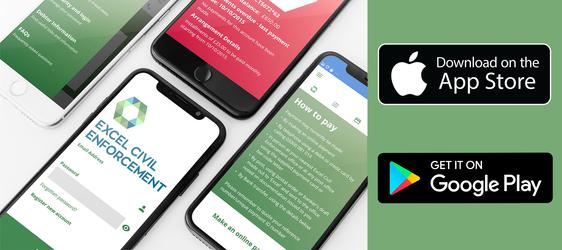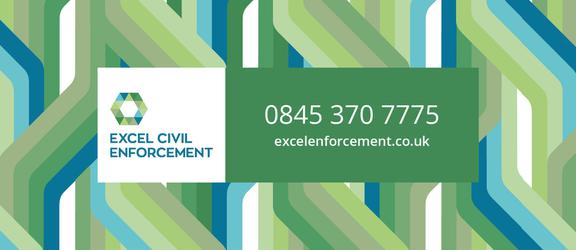Civil enforcement call centres

No doubt about it, working as a call handler in civil enforcement can be a challenging job. It’s hard work and can sometimes be unpleasant and stressful, so it’s really important to keep yourself fighting fit and healthy.
What people don’t realise about call centres is that they are free psychological counselling centres in times of crisis. Often people call up and they dump their fears and concerns on you or their anger. They may offload on you and somehow blame you for their circumstances or their inability to deal with debts or refusal to engage with correspondence.
Mental wellbeing is just as important as physical well-being and each one affects the other. Occasionally, we may feel physically unwell due to flu or some other virus, but we soon recover and there are some things that we can do to prevent ourselves from getting ill. Our mental health is exactly the same. Sometimes we can experience temporary mental ill- health and recover and, just like preventing physical ill – health, we can help ourselves prevent mental ill – health.
Impact on wellbeing
We are all human and have our breaking points but if we know why we feel like we do after an abusive call, it will help us to maintain our mental well-being. Mental health includes our emotional, psychological, and social well-being. It affects how we think, feel, and act. It also helps determine how we handle stress, relate to others and make choices.
Abusive calls
Experiencing abusive calls can be very upsetting. You may feel traumatised, especially if they’ve been of a personal nature or you've been threatened. It’s important to remember that they don’t know you personally, so, all of their insults are unfounded but, nevertheless, they can still be upsetting and make us feel sad, anxious, fearful, depressive and can affect our thoughts and moods.
Verbal abuse and fear of abuse can lead to distress, anxiety and longer-term ill-health, but there’s a lot you can do to limit the impact of abusive calls. By the very nature of the enforcement business, working as a call handler will undoubtedly mean that from time to time, you will experience abusive or upsetting calls.
It’s important, therefore, that call handlers are aware that they may be subjected to abusive calls and prepare themselves before they have to deal with them.
When spoken to rudely or aggressively it’s difficult to be polite and helpful. The most important thing for you to do is to keep your cool. It’s a recipe for disaster if both the caller and the call handler are getting angry.
You just wind each other up in a behavioural cycle where the caller’s attitude affects their behaviour which in turn affects the call handler’s attitude which affects their behaviour and so on, so, what we have to do is break the cycle.
Dealing with an abusive caller can be particularly difficult. Nobody should be expected to put up with abusive callers being openly unpleasant or insulting to them. However, you should still try to stay calm.
Professional language should always be used in these circumstances and the process of emotional impact should be understood. We need to be conscious of our own emotional reactions and ensure that our vocal tone doesn’t convey irritation but remains professional and polite.
When speaking with a caller they may be frightened, frustrated, anxious, tired, drunk, have mental health problems or be affected by drugs. Whatever their condition, they are more likely to respond aggressively if you come across as being aggressive toward them.
Preventing conflict
If you behave professionally, you are less likely to become a target. This is not a sign of weakness; it’s a sign of strength.
- Treat them with courtesy
- Sound professional
When we’re angry, we can say things that we don’t mean and do things that we wouldn’t have done if we were thinking rationally. However, reacting in the heat of the moment can result in you saying and doing things that you may regret later down the line, which is why it’s best avoided.
Instead, take a few moments to gather your thoughts before responding and allow others to do the same too. Only respond when you're feeling calm rather than when you’re seeing red.
Your role in the company is an important one as everything you do or say will reflect negatively or positively on your organisation’s reputation. Having the right attitude and acting professionally will promote your company's image.
Your role isn’t a heartless one that’s all about collecting debts; it’s also about getting people out of debt although sometimes callers will not see it that way. You need to be tactful and calm, having said that you can’t be a doormat either.
Getting your language right
To deal with conversations you need to get your language right. If you use passive language the caller will see you as weak, take control of the situation and get the best possible outcome. If you’re aggressive you run the risk of escalating a conflict situation and possibly being the victim of threats and/or abuse which could result in a breakdown in communication.
Passive language
A passive person will allow others to dictate to them without resistance or negotiation. Passivity may manifest itself as a result of low self-esteem or lack of confidence. You will never be popular or liked in your role, but you have to be direct and take the lead.
Aggressive language
Aggressive language will bring about confrontation and is not a professional way to conduct yourself. If you are direct to the point of inappropriateness you will invite the caller to react aggressively. Being verbally aggressive can be counterproductive and may harm any attempts at negotiation to pay the debt.
Assertive language
Adopting assertive behaviour will help you to maintain a positive and professional relationship. Being assertive will also improve your time management and reduce your stress. It is critically important to understand the relationship between thoughts, feelings and behaviour. It's your thoughts about something which dictate how you feel. The more negative your thoughts, the stronger your negative feelings will be.
Conversely, the more positive your thinking, the stronger your positive feelings will be. Assertive behaviour requires you to be respectful, so don’t treat an adult as a child or use condescending tones in your voice.
When using assertive behaviour, you must speak fluently, this doesn’t mean that you should speak rapidly or continuously. Speaking fluently means that you have an effective point to make, you should make it clearly and succinctly. Don’t trip over your words or try and work out what you should say but consider your thoughts and only respond when you have formulated your response.
An angry caller is not necessarily an abusive caller. An angry caller probably won't be careful about the specific language they use. Remember, it's not personal and it isn't about you. Taking it personally will stress you out unnecessarily.
Active listening
The caller cannot see you, so some verbal feedback helps reassure them that the line has not gone dead, and you're listening. As they talk, make indications that you're listening. This will assure them that you are paying attention and make them feel like you want to hear the whole story.
Stay calm
Use a level voice. Your instinct may be to raise your voice in response to being yelled at but this will only make matters worse. It will escalate the conversation to an argument. Keep your voice level throughout the call, never speaking above a normal but assertive conversational tone.
Ask questions to calm the caller down. Rather than arguing with the caller, ask questions to focus their mind on the facts.
No one likes to get confronted by a yelling, heated person on a telephone. However, your job in this situation is to stay cool and collected. While you may have the urge to yell right back at them, fight the urge! Yelling and getting angry will only escalate the situation. Never use sarcasm or obviously faked politeness. Behaving in such a way will only fuel the caller’s rage and will make the situation a whole lot worse.
Don’t take it personally
Separate your feelings from the situation. If the caller is particularly angry, he or she may say something (or several things) that are really rude. Keep in mind that you shouldn't take it personally, he or she is upset with the situation they find themselves in, they are not upset with you as a person. Set your personal feelings aside.
Get the volume right
Your volume communicates a great deal about you. If you are too loud, you come across as aggressive. If you are too quiet, you come across as timid and lacking in confidence. If you lack confidence in your voice you will not achieve your preferred outcome.
Low volume suggests to others that you don’t really believe in what you are saying, consequently, the caller will not understand the gravity of the conversation and will tend to not pay any attention. Alternatively, if you speak too loudly you may alienate the caller; they might become defensive or switch off. Whereas with assertive behaviour and the right tone and volume, the caller will be more receptive.
Smile
Your mental state has a strong impact both on how you handle the caller and how they respond to you. Treat each call as if it was your first call of a very good day. Put a smile on your face. If you were irritated on the previous call, calm yourself and start afresh. The caller will respond to your tone. Your upbeat mood will be contagious, and you are likely to get a more positive response from them.
Some callers will try to get you off track by complaining, or somehow shifting the blame for their non-payment on to you. Be polite, even validate their opinion. But always bring them right back to the reason for the call.
A screaming caller could be using anger as a ploy to get you upset and end the conversation. Remind them that you cannot help to resolve the situation if they continue with inappropriate behaviour.
Warning the caller
It's a common call handler's practice to warn an abusive caller about their behaviour twice and if the caller continues to be abusive terminate the call. The warnings should be quite simple asking the caller to stop being abusive so that the caller and the call handler can work together.
Allow the caller to communicate their feelings, but if they begin to call you names or use explicit language. Tell them what the consequences will be if they continue speaking in this manner.
Avoid using these phrases, as they will cause conflict:
- Calm down
- Don’t you dare talk to me like that!
- Who do you think you are?
- I don’t know!
- I don’t believe you!
- I’m not sure!
- Sorry, I’m new here!
- Would you like to speak to a manager?
Use these instead
- I can solve this problem for you, but only if we can discuss it calmly.
- I don’t want to terminate the call but you're making it very difficult for me to help you
- I cannot help to resolve the situation if you keep yelling or talking over me
- I didn’t want to have to put the phone down on you, but you’ve left me no other option, goodbye” and terminate the call
Never rise to their baiting. If you give them the slightest opportunity to retaliate, they will seize the opportunity with both hands and feel justified to continue with their tirade of abuse or, even worse, may escalate the conflict situation, and above all, do not let the caller control your emotions.



